Proof That It’s a Pre-Code Film
- We’re introduced to the film’s villain as he seers closed the wound from where our hero had cut off his ear.
- Dashing Captain Carson is well acquainted with the ladies of the hotel and whose room number is whose.
- “They give dames away with cigarette coupons around here.”
“Very well. Place your own value on me.”
- “You think I would betray you? All those white men and women, for those filthy…”
“Sure. Why not?”
- “You’re like a picture on a magazine cover.”
“No I’m not. I’m wearing too many clothes!”
- Our leads clearly knock boots.
- A man gets roasted alive. Fun!
Roar of the Dragon: Holding Their Own
“You don’t need to be ashamed of being kind.”
“Not when I have so many other things to be ashamed of.”
An interesting little potboiler, Roar of the Dragon has a surprising amount of setup for what turns into a tense little siege situation. It’s China in the 30s, civil war abounds and bandits burn their way wherever they please. We’re introduced the nastiest of the lot, Voronsky, a Russo-Chino leader who is sealing the wound where his ear used to be with a hot knife when we meet him, just as he pledges revenge on Carson, a riverboat captain who got the better of him during Voronsky’s last raid.
But now Carson’s boat is in for repairs, and he’s taken up in a small Chinese inn. They’re the usual types– Dudley Digges is a portly coward. Zasu Pitts wisps about. Edward Everett Horton is a fussy clerk who’s on duty at the wrong time. Arline Judge is a waylaid entertainer who managed to get a full five people in the audience at her last performance. There are a few more soldiers, a doctor, a butcher, some orphans, and a few spies for good measure. And then there’s Natascha, the beautiful woman who takes up residence in one room and keeps a case containing suicide pills around her neck at all times. She’s seen some shit.
Richard Dix’s Carson is very much the usual Dix type– “If it wasn’t for these Chinese herbs, I’d still be in the navy– plenty of good fighting there.”– but with a twist. He’s a lush. He’s a fighter and a leader, but he can’t deal with it. His only consolation is drink and loose women impressed with his brawling. Check out this great exchange as Digges’ boat owner lays into Carson, and Carson’s calm, nasty comeback:
“That’s what you’re best at– holding hands and liquor glasses!”
“… is it possible your wife was ever in love with you?”
Voronsky gets word that Carson is nearby and sends a contingent of men to pillage the town and bring him Carson’s ear– and whatever else happens to be attached. With no way to move the boat, Carson takes command of the small inn, installing a machine gun in a nearby tower and daring Voronsky’s men to attack. They opt to starve the group out instead, and things aren’t pretty– and get worse.
A note about this movie: the violence (qualified for the fact that it’s a 1930s film) is brutal. Just how much of an advantage a machine gun is against a horde with rifles is clearly demonstrated as we watch swaths of bandits getting mowed down, all while Dix has that gleam shimmering in his eye. There are stabbings, immolation, and plenty of threats of rape, murder and starvation to go around. It’s all wonderfully evocative– producer David O. Selznick could never be accused of skimping on atmosphere– and thrilling to an extent.
Gwili (pronounced “Jee-lee” according to one fan mag) Andre is the female lead, a blonde Selznick discovery who was one of dozens of foreign actresses or models flown into Hollywood in an attempt to recapture the Garbo/Dietrich magic mojo. Andre is a bit better than most of the pack, not the least of which because of her striking looks. Gazing at her, you can see Myrna Loy, Katharine Hepburn, and Marlene Dietrich at different intersections in her face– all great references considering the film. But, unfortunately, she doesn’t have the presence of any of them. She fits in well with the proceedings, but suffers as she gets screwed in the last act when her character fades to the background. It makes it apparent how weak both she and her character were– the last twenty minutes, after she dodges a bullet, are nothing but wailing and begging. It throws off the balance, and Andre is helpless without the writing that carried her through the first two acts.
Spoilers.
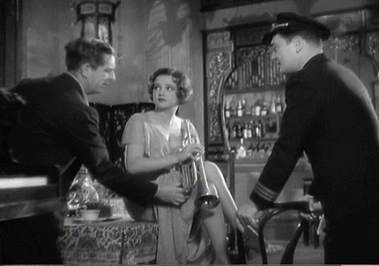 That weirdness is because Roar transitions from an exotic romance to an odd sort of bromance. (Are we still using that word in 2016? Wait, don’t tell me, I don’t want to know.) Horton starts off the film as the typical Horton character, fussy and high minded as he snaps about the morals of the many women who keep Carson’s company. He’s also not thrilled when O’Dare, the girl he’s set on marrying, eagerly shows off her leg to Carson if just for a moment of flirtatious nonsense. But once the siege sets in, Horton’s Busby becomes an invaluable ally for Carson, the one who respects his authority and skills without question and takes all of Carson’s quiet lessons about bravery in the face of the inevitable to heart.
That weirdness is because Roar transitions from an exotic romance to an odd sort of bromance. (Are we still using that word in 2016? Wait, don’t tell me, I don’t want to know.) Horton starts off the film as the typical Horton character, fussy and high minded as he snaps about the morals of the many women who keep Carson’s company. He’s also not thrilled when O’Dare, the girl he’s set on marrying, eagerly shows off her leg to Carson if just for a moment of flirtatious nonsense. But once the siege sets in, Horton’s Busby becomes an invaluable ally for Carson, the one who respects his authority and skills without question and takes all of Carson’s quiet lessons about bravery in the face of the inevitable to heart.
Carson, meanwhile, actually learns something about himself from Busby– from his steadfast loyalty and his devotion to his girl– that deepens Carson’s appreciation for Natascha beyond just bedroom antics.
This is why perhaps the film’s craziest image– Edward Everett Horton helming a machine gun– somehow works perfectly. He’s grown to respect authority and violence. But that’s also why Natascha’s arc doesn’t work. Hers ends 20 minutes before the film does.
End spoilers.
Both in spite and because of that, this movie is an intriguing little oddity. China, used to the effect of decadent repute and tempting sin in films like Shanghai Express and The Bitter Tea of General Yen here becomes the wilderness of movies such as Rio Bravo or Assault on Precinct 13. Here it’s bandits that slowly close in on an outpost, dangling that tension mixed with Oriental allure for all the greed, lust, and even the occasional better attitudes of the white folks who fret around as the icy hand of death closes in.
Do those ugly racial attitudes of the past rise up? Yeah, of course– all of the film’s spies are conveniently non-white. But I can’t express the amount of joy I felt when it turned out that C. Henry Gordon wasn’t supposed to be in yellow face– it’s the little things, ya know? It’s also nice to see that while the white people are the targets, it’s clear that Voronsky and his group are more than happy to kill anyone– even each other– out of their insatiable greed.
Roar of the Dragon is a fun little B-movie, the kind that’s quietly smart while still retaining a tinge of shock 80+ years on. There’s no apologies for the violence here, just a weary understanding that so long as men battle, there will be fighters. It’s what they’re fighting for that makes all the difference.
Gallery
Click to enlarge. All of these images are taken by me– please feel free to reuse with due credit!
Trivia & Links
In an RKO studio memorandum, executive sales manager Ned Depinet complained about David Selznick’s insistence that Edward Everett Horton, a free-lance actor, be paid $3,500 per week for his work on this picture. According to Depinet, “Horton is not worth $3,500 per week or anything like that amount. While he is reputed to an excellent actor, he has not five cents worth of box office and for many people, myself among them, he does as much to ruin a picture as to help it.”
- Toshia Mori, a WAMPAS Baby Star who would also appear in The Bitter Tea of General Yen and Blondie Johnson, is listed in the credits, though I managed to miss her.
- According to Hollywood Heyday, the film was originally set to reunite Dix with his Cimarron co-star Irene Dunne. I love Irene Dunne, but I think we can agree that it’s for the best that that one didn’t pan out.
- The New York Times review drips with disdain.
- Stills and a couple not-so-great posters over at Doctor Macro.
- Acidemic’s review of this one is sublime and giddily enthusiastic:
I wont spoil the events, but suffice to say Edward Everett Horton goes ballistic with a tripod machine gun. You heard me: E.E. Horton, the effete cuckold from so many golden screwballs! He rocks it! The square-jawed Dix also rocks it; the fake Dietrich rocks it as well. I haven’t said this in awhile about anything, but this film is the shit! Like if Paramount’s SHANGHAI EXPRESS joined up with MGM’s MASK OF FU MANCHU and it kicked BITTER TEA OF GENERAL YEN’s ass all the way back to Columbia, dragging his canoe behind him!
Awards, Accolades & Availability
- This one is available on DVD thanks to Warner Archive. Get it at Amazon.
More Pre-Code to Explore

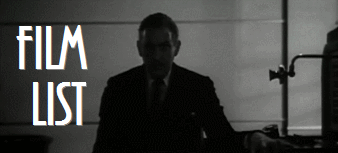
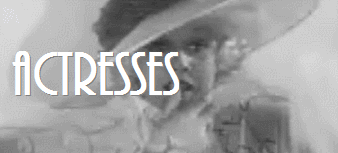
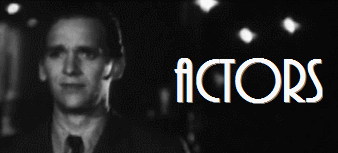
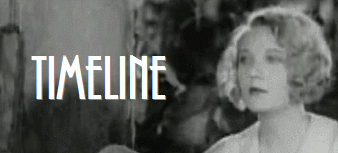
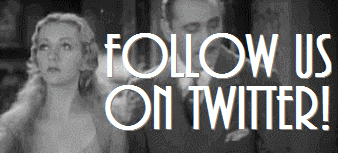

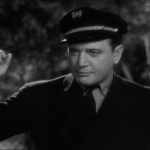
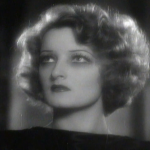
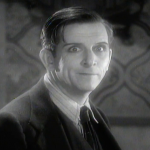
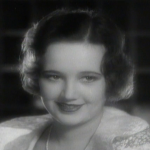
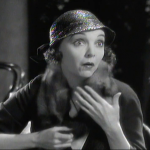
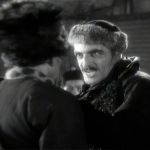
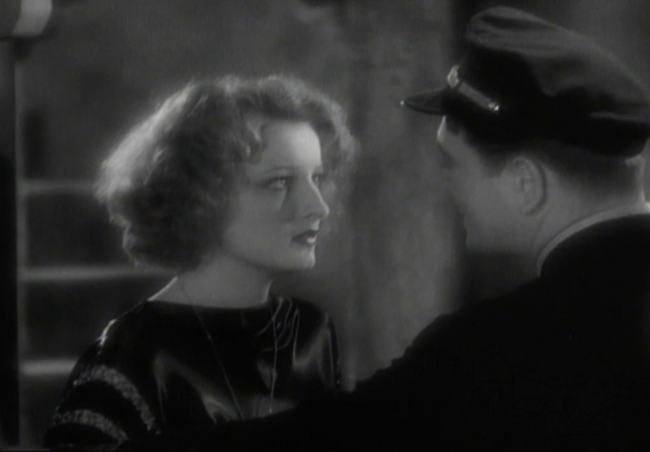
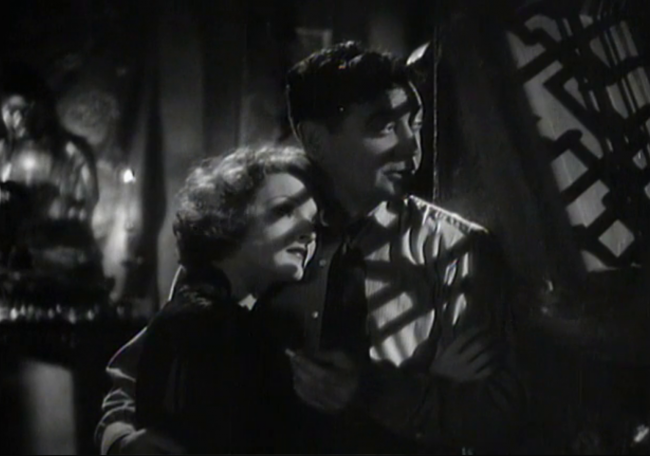
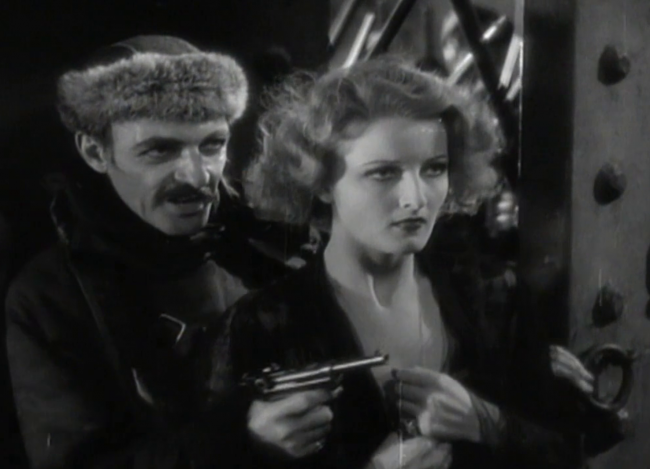
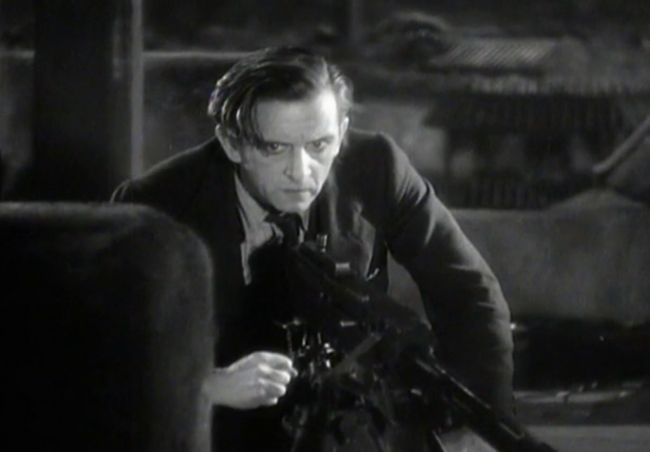
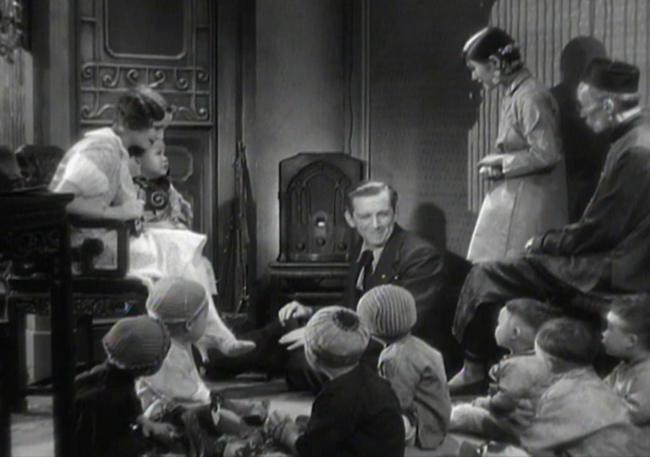

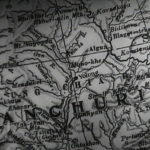
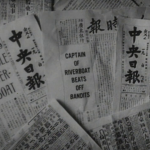
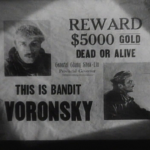
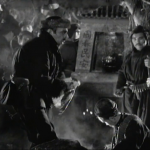
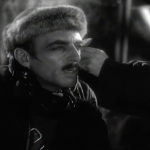
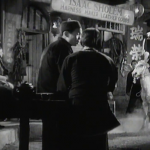
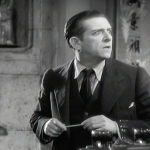
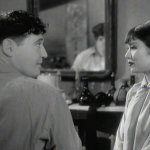
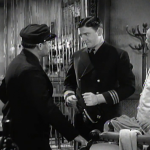

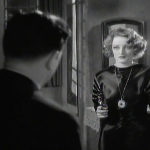
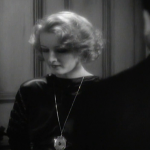
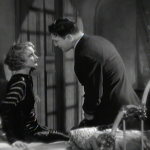
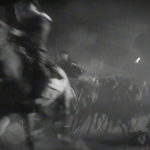
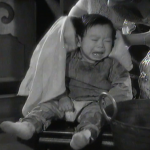

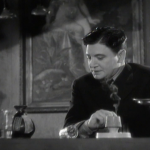
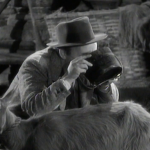
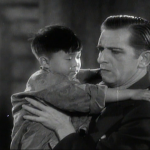

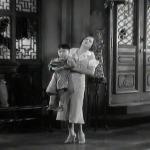
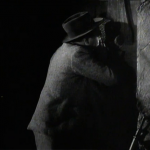
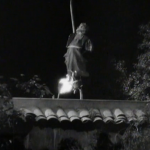
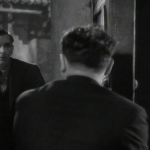
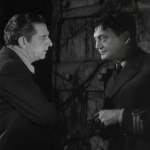
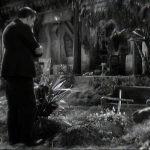
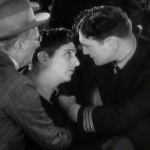
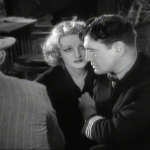
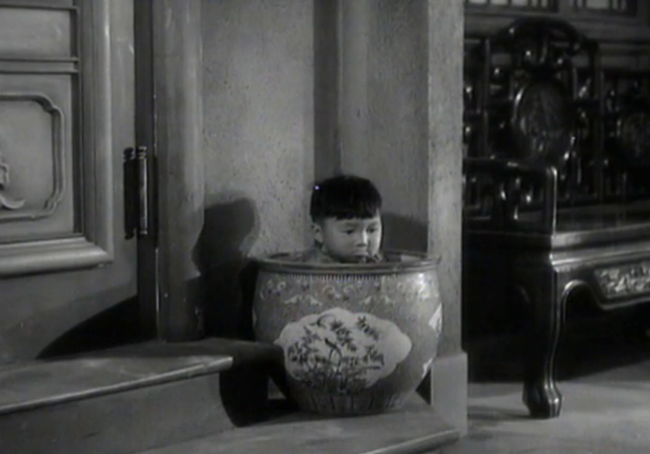



6 Comments
Terence · April 4, 2016 at 3:02 am
Edward Everett Horton manning a machine gun! And in Hollywood’s China. What’s not to like? I’ve got to see this one. I’m tickled to see real life lush Dix playing a movie lush. By most accounts, drink is what killed Dix and probably scuttled his career. The Whistler series of B movies from the late 40s are enjoyable and worth a look, Danny — very atmospheric film noirs inspired by a radio thriller series and directed by a young William Castle. Dix always plays a doomed protagonist in the films (the Whistler is actually just a character who comments on the action). His somewhat lethargic (almost somnambulant) and perhaps inebriated reading of his lines delivery only heighten the sense of doom.
Danny · April 13, 2016 at 2:31 pm
Huh! I’ve heard good things from Cliff about the Whistler series, I’ll have to bump them up on my to-see list.
Lesley · April 4, 2016 at 4:19 am
I DVRed this when TCM showed it recently and while I haven’t actually managed to watch it from front to back, my reactions match yours exactly (great minds and all that). The sheer amount and brutality of the violence is either impressive or appalling depending on your point of view, EE Horton is great in a role that lets him grow beyond his normal prissy contours, and the whole affair is taut and suspenseful. Not a masterpiece or anything but the sort of movie I love to discover—one I’ve never heard of that’s just better than most of its peers.
It’s the perfect bottom of the bill of a double feature with Shanghai Express.
So much B product is staggeringly incompetent or just dull, or manages to take an interesting premise and go up the wrong path with it. I love these smaller movies where somebody cared enough to make them the best that they could be. Selznick is probably that person, though not all his productions from this era are this watchable.
Danny · April 13, 2016 at 2:35 pm
Well put Lesley!
Patricia Nolan-Hall (@CaftanWoman) · April 4, 2016 at 9:09 am
I really got caught up in the excitement of this one. I always knew Edward Everett Horton could make me laugh, but never knew he could make me cry.
Danny · April 13, 2016 at 2:35 pm
I was surprised, especially considering how much his early character reflected his usual persona. It was a great bit of casting.
Comments are closed.